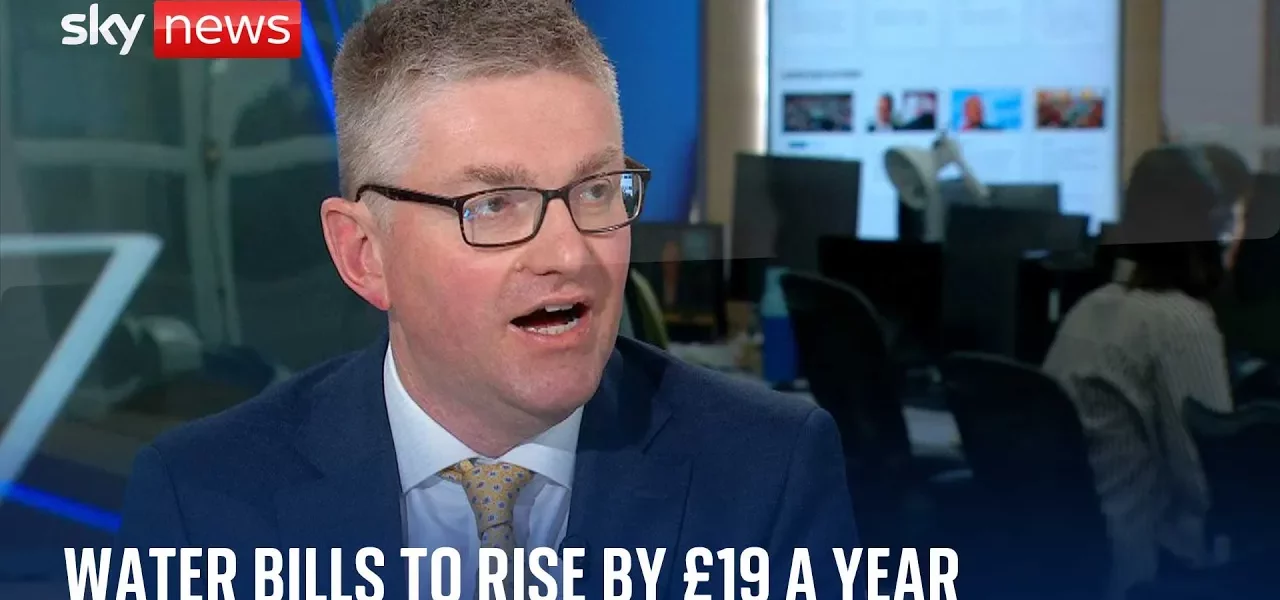Talk About Your Water Bills – An In-Depth Discussion with David Black, CEO of Ofwat

In this article, we delve into the critical issues surrounding water bills, the recent investment strategies in the UK water sector, and the future of water quality. Join us as we explore insights from David Black, the CEO of Ofwat, on how these changes will impact consumers and the environment.
Introduction
The UK water sector is currently undergoing significant changes, driven by a need for improved performance and accountability among water companies. With rising concerns about sewage discharges and the quality of drinking water, a substantial investment package has been announced. This article explores the implications of this investment, the operational challenges faced by water companies, and the expected impact on water bills for consumers.
The Investment Package in the Water Sector
The recent announcement of a £300 billion investment package marks the largest ever financial commitment to the UK water sector. This investment aims to address critical issues such as sewage discharges, leakage reduction, and overall performance enhancement across water companies.
Objectives of the Investment
- Reduction of sewage discharges, especially in sensitive areas like the Thames.
- Improvement of infrastructure to minimize leaks and enhance service delivery.
- Strengthening accountability measures for company executives.
Accountability in the Water Sector
One of the pressing concerns highlighted in the discussion is the accountability of water company executives. The introduction of new powers aimed at restricting bonuses and dividends for underperforming companies represents a significant shift in how the sector operates.
New Powers and Regulations
- Ban on bonuses for executives if performance targets related to water quality are not met.
- Restrictions on dividend payments to ensure reinvestment in infrastructure improvements.
- Potential criminal sanctions for executives failing to prevent sewage contamination.
Challenges Facing Water Companies
Despite the financial backing, many water companies are grappling with operational inefficiencies and financial instability. One notable company, Thames Water, has been under scrutiny for its performance and financial health.
Operational Performance Issues
Thames Water faces significant challenges in its operational performance, which affects investor confidence and the company’s ability to secure necessary funding.
Financial Viability and Future Outlook
With rising costs and pressure to improve service quality, water companies must develop robust turnaround strategies to avoid potential insolvency. The role of new leadership in addressing these challenges is critical.
The Impact of Rising Water Bills
As part of the investment strategy, water bills are projected to rise by approximately £1.19 annually for the next five years. This increase poses a challenge for consumers already facing a cost of living crisis.
Consumer Concerns
Many households are concerned about the escalating cost of their water bills amidst rising energy prices and other living costs.
Ensuring Fair Pricing
It is essential to balance the need for increased funding in the water sector with fair pricing for consumers. Regulatory bodies are tasked with scrutinizing company plans to ensure that costs are kept in check.
Long-Term Plans for Water Infrastructure
Addressing the UK’s aging water infrastructure is crucial for ensuring sustainable water supply and quality. The recent investment package outlines long-term strategies to improve the water system over the next 25 years.
Key Infrastructure Projects
- Construction of nine new reservoirs to secure drinking water supply.
- Implementation of advanced technologies to monitor and manage sewage systems.
- Enhanced strategies for climate resilience in water supply management.
Conclusion
In summary, the UK water sector is at a pivotal moment. With a historic investment package and a focus on accountability, there is potential for significant improvement in water quality and service delivery. However, the challenges remain substantial, and the pathway to reform will require sustained effort and commitment from all stakeholders. It is imperative for consumers to stay informed and engaged as these changes unfold. For further insights and updates on water management strategies, explore our related articles on environmental policies and water conservation practices.
“`




